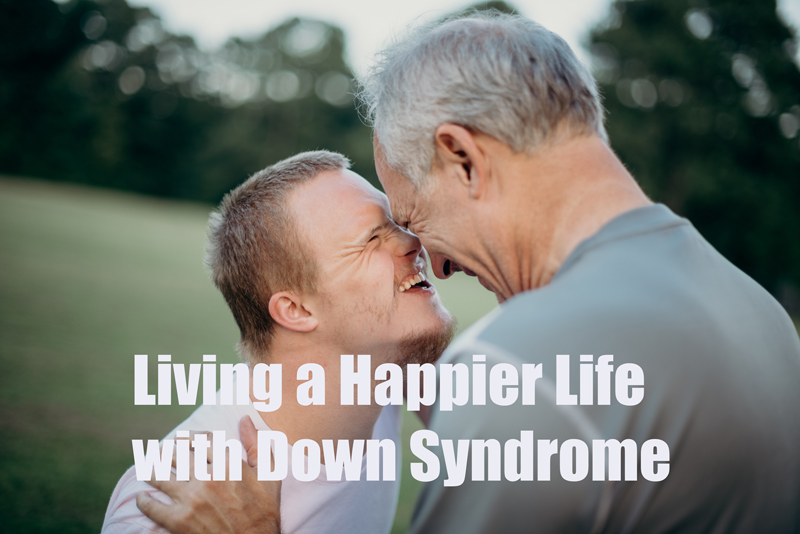Down Syndrome - Living a Happier Life
Oct. 3, 2023 #Schizophrenia
Introduction
Down syndrome is a genetic condition with an extra chromosome 21. It challenges preconceptions and inspires resilience. Understanding its causes, recognizing distinct characteristics, and exploring available support and therapies empower individuals with Down syndrome to lead fulfilling lives, breaking societal barriers.
Defining Down Syndrome
Down syndrome, also known as Trisomy 21, results from the presence of an extra full or partial copy of chromosome 21. This additional genetic material impacts development and causes various physical and intellectual challenges. It occurs in approximately 1 in 700 live births (numbers may vary in different geographic locations around the world), making it the most common chromosomal disorder.
Causes of Down Syndrome
The majority of Down syndrome cases, around 95%, are classified as Trisomy 21, where each cell in the body has three copies of chromosome 21 instead of the typical two. This occurs due to a random error during the formation of reproductive cells.
Another less common cause is Translocation Down syndrome, where a part of chromosome 21 attaches to another chromosome during cell division. Lastly, Mosaic Down syndrome results when not all cells have the extra chromosome; only a percentage exhibit the genetic anomaly.
Characteristics of Down Syndrome
Down syndrome presents a spectrum of characteristics that vary widely among individuals. Common physical features include:
1. Facial Characteristics:
Upward slanting eyes, a flatter facial profile, and a smaller nose and ears are often distinctive.
2. Low Muscle Tone:
Hypotonia, or low muscle tone, is common and may affect motor skills and coordination.
3. Cognitive Challenges:
Intellectual disabilities ranging from mild to moderate are prevalent, but individuals with Down syndrome can lead meaningful and independent lives with appropriate support.
4. Heart Abnormalities:
Congenital heart defects are more prevalent, necessitating early medical attention.
Support and Therapy for Down Syndrome
Providing effective support and therapy is key to empowering individuals with Down syndrome to overcome challenges and reach their full potential.
1. Early Intervention Programs:
Early intervention services, including physical, speech, and occupational therapies, aim to address developmental delays and enhance motor skills, speech and socialization.
2. Inclusive Education:
Inclusive education programs, where individuals with Down syndrome learn alongside their typically developing peers, promote social integration and academic progress.
3. Medical Care and Treatment:
Regular medical check-ups and prompt attention to associated health concerns, such as hearing or vision issues, contribute to overall well-being.
4. Speech and Language Therapy:
Speech and language therapy assists in improving communication skills, addressing speech impediments, and enhancing verbal expression.
5. Behavioral Therapy:
Behavioral therapy provides strategies to manage challenging behaviors and foster emotional regulation.
6. Supportive Technologies:
Assistive technologies, including communication devices and adaptive tools, enhance independence and participation in daily activities.
7. Community Support Groups:
Support groups for individuals with Down syndrome and their families create a network for shared experiences, advice, and emotional support.
Living a Fulfilling Life with Down Syndrome
Individuals with Down syndrome lead unique and fulfilling lives, contributing to their communities and defying stereotypes. Many excel in areas such as sports, arts, and even pursue higher education. The journey involves embracing individual strengths and providing tailored support to navigate challenges.
Embracing Abilities:
Focusing on abilities rather than limitations is essential. Many individuals with Down syndrome possess unique talents and skills that contribute positively to society.
Encouraging Independence:
Encouraging independence fosters self-esteem. With appropriate support, individuals with Down syndrome can lead independent lives, make choices, and contribute meaningfully to their communities.
Promoting Inclusion:
Inclusive communities that value diversity and promote accessibility enable individuals with Down syndrome to participate fully in social, educational and work environments.
Advocacy and Awareness:
Advocacy efforts and raising awareness challenge stereotypes and promote inclusivity. By dispelling misconceptions, society can create environments that embrace diversity.
Conclusion: Celebrating Diversity and Resilience
Down syndrome is not a limitation but a unique journey marked by resilience, tenacity, and the celebration of individual strengths. Understanding the causes, recognizing distinctive characteristics, and providing tailored support and therapies are crucial steps toward fostering an inclusive society that values diversity.
Embracing the abilities and potential of individuals with Down syndrome enriches communities, creating a world where differences are celebrated, and every individual is given the opportunity to lead a fulfilling and meaningful life.






COMMENTS